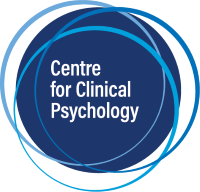Cognitive Processing Therapy or CPT for PTSD is an effective evidence based therapy that like many therapies has been delivered in a weekly or twice weekly format. Now there is evidence that it can be delivered more intensively.
2018
Craig Bryan and colleagues (2018) examined Military Servicemembers and Veterans with PTSD or subthreshold PTSD (N = 20). They engaged in 12 sessions of individual CPT over 2 weeks along with recreation and psychoeducational sleep classes.
Bryan’s team reported that the number of participants meeting full diagnostic criteria for PTSD significantly declined from 85.0% at pre-treatment to 43.4% at the 6-month follow-up.
Unfortunately, Depression symptoms did not improve, but the severity of suicidal ideation declined from pre-treatment to 6-month follow-up, with the percentage of participants reporting any suicidal ideation falling from 65.5% to 41%
2020
Philip Held and team (2020) took 209 veterans through a 3-week, CPT based intensive treatment programme for PTSD. Participants’ PTSD (PCL-5) and depression (PHQ-9) symptoms were assessed at pre-treatment, post-treatment, and at 3-, 6-, and 12-month follow-up timepoints.
There were small symptom increases from post-treatment to 3-month follow-up. However, significant and clinically meaningful reductions in PTSD and depression symptoms were reported from intake to 12 months follow-up. On average participants had a reduction of greater than 18 points on the PCL-5 (d = 1.28) and greater than 6 points on the PHQ-9 (d = 1.18).
2021
Elizabeth Goetter and team (2021) examined 296 veterans with posttraumatic stress disorder (PTSD). They received either PE (N= 186) or CPT (N= 90), alongside other trauma-informed interventions, in a 2-week intensive clinical program. Treatment selection was determined collaboratively between patient and therapist. Both PTSD and depression were examined. Both PE and CPT groups changed from baseline through to the 6-month follow-up. Results were similar for depression outcomes. Goetter and team concluded both PE and CPT were associated with comparable improvements when delivered as part of a 2-week intensive outpatient program.
2022
Tara Galovski and colleagues (2022) conducted a small pilot study (N=12) with survivors of intimate partner violence (IPV). They tested the relative effectiveness of individual massed (or intensive) CPT delivered over 5 days compared with standard CPT delivery. That is once per week for 12 weeks. They found that both intensive and standard CPT were associated with large effect improvements from pre-treatment to post-treatment and from pre-treatment to 3-month follow-up. Similarly, both treatment forms also showed significant improvements in depressive, anxiety, and stress symptoms. In summary, there were no differences in the treatment modality on any outcome. In other words both were just as good as each other.
Cynthia Yamokoski’s team (2022) investigated the feasibility of an intensive outpatient treatment program for posttraumatic stress disorder within the American veterans health care administration. They reported that their intensive program offered two tracks (2 week or 4 week) of massed delivery of PE or CPT. Over a 12-month period, 351 veterans completed an assessment for PTSD and 172 started within one of the local PTSD programs (e.g., weekly, Intensive Outpatient Program, or residential program). They described that the intensive outpatient program had a high completion rate at 87.3% with an effect size of d = 1.80 on the PCL-5.
In another study Craig Bryan and fellow investigators (2022) examined intensive CPT against Standard delivery (i.e., daily vs. weekly sessions). They also assessed the effect of setting (i.e., clinic vs. recreational) on PTSD treatment outcomes.
Their study involved forty-five military personnel and veterans diagnosed with PTSD who chose to receive CPT. They received therapy in one of the following ways.
(a) daily at a recreational facility with recreational programming,
(b) daily on a university campus without recreational programming, and
(c) weekly on a university campus without recreational programming.
PTSD symptom severity was assessed with the Clinician Administered PTSD Scale for DSM-5 (CAPS-5) and the Posttraumatic Stress Disorder Checklist for DSM-5 (PCL-5). Reductions in CAPS-5 and PCL-5 scores were large and statistically significant across all three settings.
They had some very interesting findings, such as that reductions in CAPS-5 and PCL-5 scores were significantly larger in daily therapy on campus, compared to at a recreational facility with recreational programming. Daily therapy on campus compared to weekly on a university campus was not statistically different.
They stated that their results support the effectiveness of CPT across multiple treatment settings and formats. However, they also outlined that their data suggest that daily CPT may be less effective when delivered in combination with recreational activities.
Summary
There is increasing evidence of the effectiveness of CPT (And other trauma focussed therapies) delivered in intensive or massed format. This offers clients flexibility in the way they can receive treatment.
References
Bryan, C. J., Leifker, F. R., Rozek, D. C., Bryan, A. O., Reynolds, M. L., Oakey, D. N., & Roberge, E. (2018). Examining the effectiveness of an intensive, 2-week treatment program for military personnel and veterans with PTSD: Results of a pilot, open-label, prospective cohort trial. Journal of Clinical Psychology, 74(12), 2070–2081. https://doi.org/10.1002/jclp.22651
Bryan, C. J., Russell, H. A., Bryan, A. O., Rozek, D. C., Leifker, F. R., Rugo, K. F., Baker, J. C., Khazem, L. R., Roberge, E. M., Shirley, D. M., & Asnaani, A. (2022). Impact of Treatment Setting and Format on Symptom Severity Following Cognitive Processing Therapy for Posttraumatic Stress Disorder. Behavior Therapy, 53(4), 673–685. https://doi.org/10.1016/j.beth.2022.01.014
Galovski, T. E., Werner, K. B., Weaver, T. L., Morris, K. L., Dondanville, K. A., Nanney, J., Wamser-Nanney, R., McGlinchey, G., Fortier, C. B., & Iverson, K. M. (2022). Massed cognitive processing therapy for posttraumatic stress disorder in women survivors of intimate partner violence. Psychological Trauma: Theory, Research, Practice, and Policy, 14(5), 769–779. https://doi.org/10.1037/tra0001100
Goetter, E. M., Blackburn, A. M., Stasko, C., Han, Y., Brenner, L. H., Lejeune, S., Tanev, K. S., Spencer, T. J., & Wright, E. C. (2021). Comparative effectiveness of prolonged exposure and cognitive processing therapy for military service members in an intensive treatment program. Psychological Trauma: Theory, Research, Practice, and Policy, 13(6), 632–640. https://doi.org/10.1037/tra0000956
Held, P., Zalta, A. K., Smith, D. L., Bagley, J. M., Steigerwald, V. L., Boley, R. A., Miller, M., Brennan, M. B., Van Horn, R., & Pollack, M. H. (2020). Maintenance of treatment gains up to 12-months following a three-week cognitive processing therapy-based intensive PTSD treatment programme for veterans. European journal of psychotraumatology, 11(1), 1789324. https://doi.org/10.1080/20008198.2020.1789324
Yamokoski, C., Flores, H., Facemire, V., Maieritsch, K., Perez, S., & Fedynich, A. (2022). Feasibility of an intensive outpatient treatment program for posttraumatic stress disorder within the veterans health care administration. Psychological Services. Advance online publication. https://doi.org/10.1037/ser0000628



